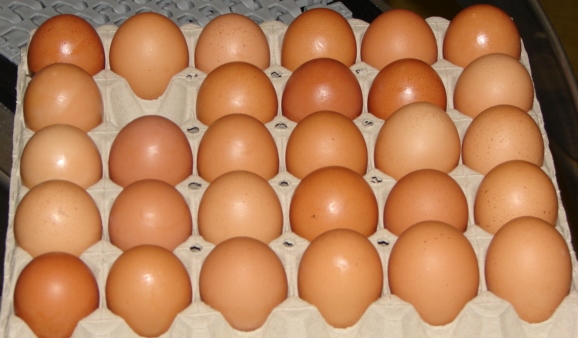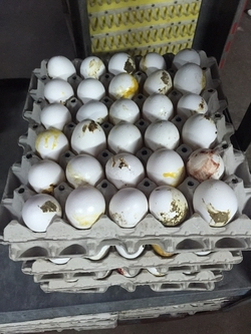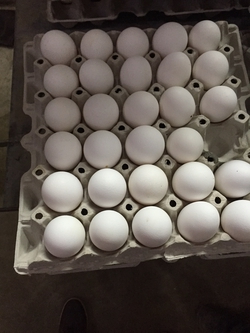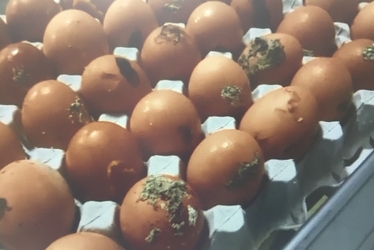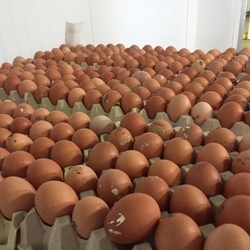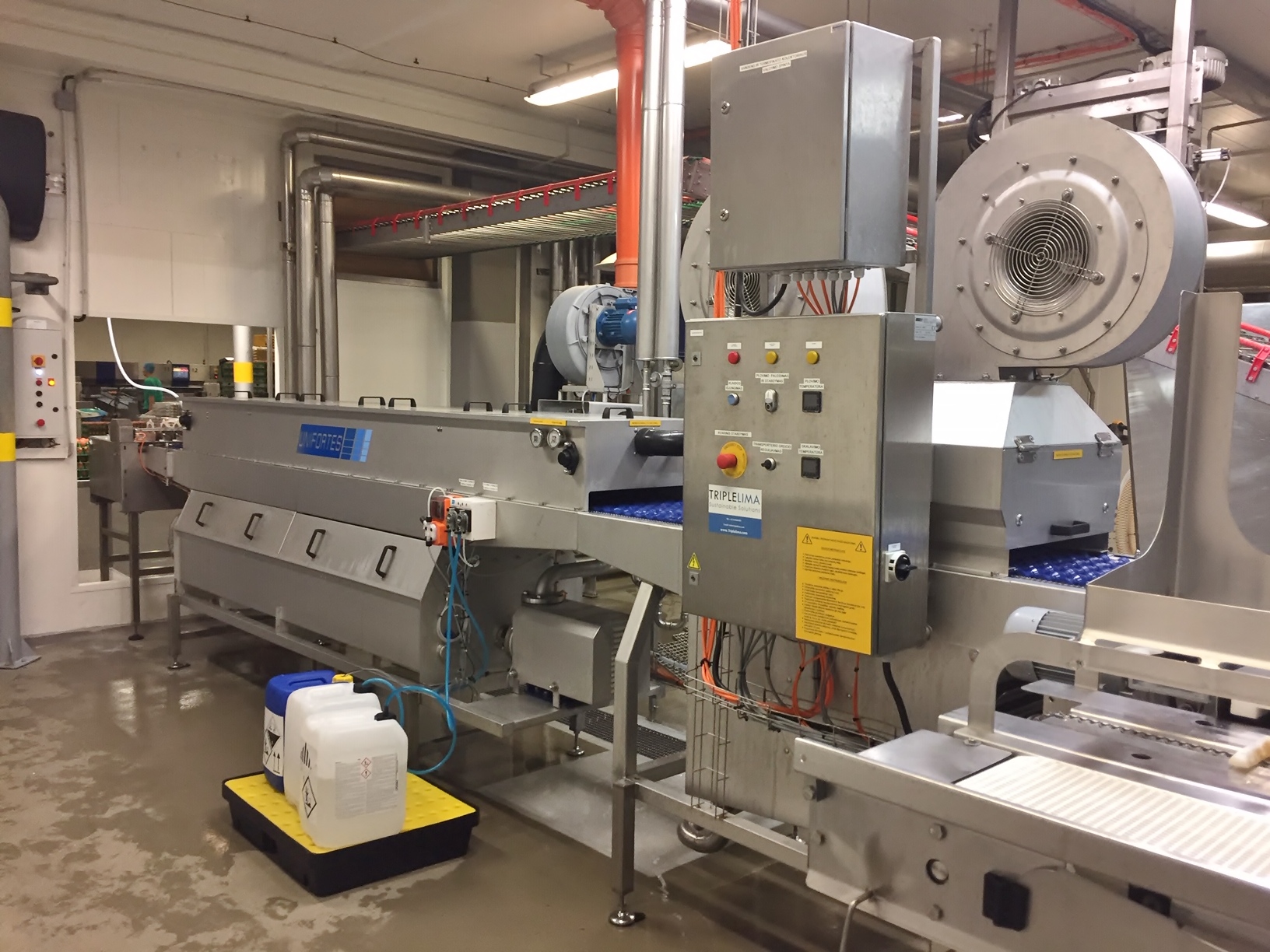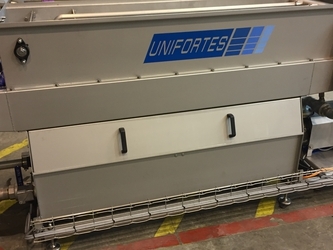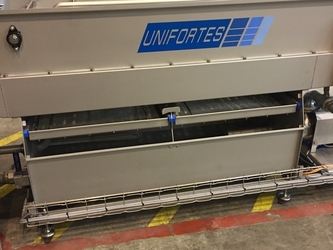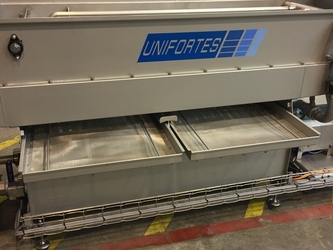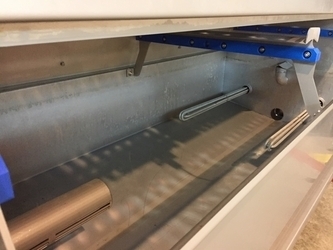Despite all your efforts to produce clean eggs at your chicken farms, there will always be a percentage of eggs that will be visible dirty. These eggs cannot be sold as A class eggs and that affects your profits very negatively.
Egg washing is a tool that you can use to increase your profits…but you need to do it correctly.
Triplelima is a Dutch based company that provides industrial washing and robot automation equipment for the Poultry Industry and we have the tools and the knowledge to help you profit.
This blog contains the information you need to know about cleaning eggs and commercial egg washer (s).
Many poultry professionals fear that the external cuticle of chicken eggs are damaged during the washing process and this way bacteria can easily enter and contaminate the eggs.
Does washing destroy the external egg cuticle?
Tests made in 2010 concluded that no evidence could be found to suggest that washing changed the quality of the cuticle. (see Journal of Food Protection, Vol. 74, No. 10, 2011, Pages 1649–1654 doi:10.4315/0362-028X.JFP-11-013. Copyright G, International Association for Food Protection)
If the cuticle is not affected negatively why do many poultry professionals still experience or fear that their eggs are negatively affected by washing? Simply because washing is done with the wrong tools and according to wrong procedures.
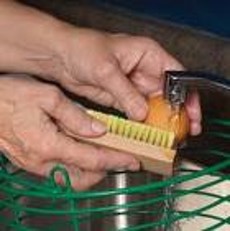
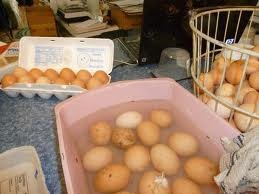
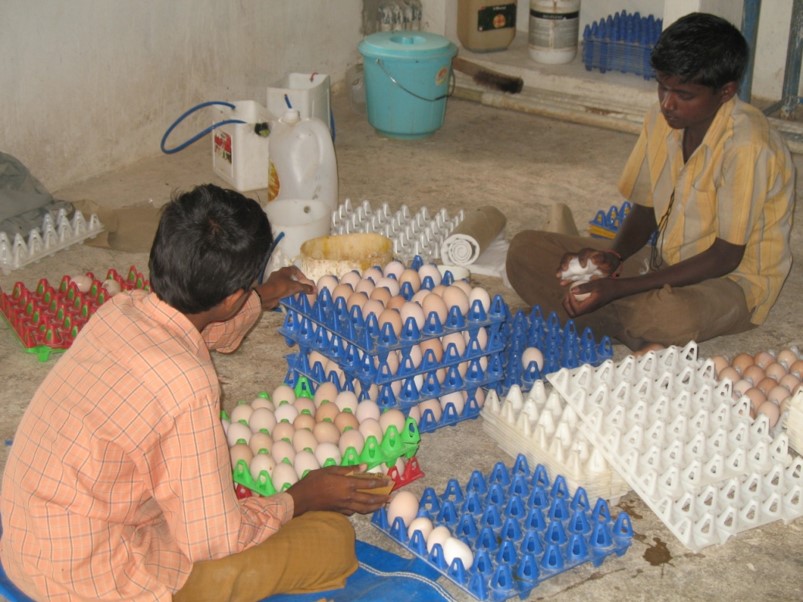
Egg washing needs to be done with the correct tools and according to correct procedures. Otherwise it should not be done at all.
Advantages
1) Washing warrants a more hygienic and safe food product.
Bacterial reductions of 1 to 6 log were found upon correct cleaning practices.
Decreasing the bacterial load on the shell surface (“sanitizing”) helps preventing the infection of eggs by horizontal transmission of bacteria and helps reduce contamination of the consumers while handling eggs.
This is also valid for eggs that we visually classify as class A. See following pictures:
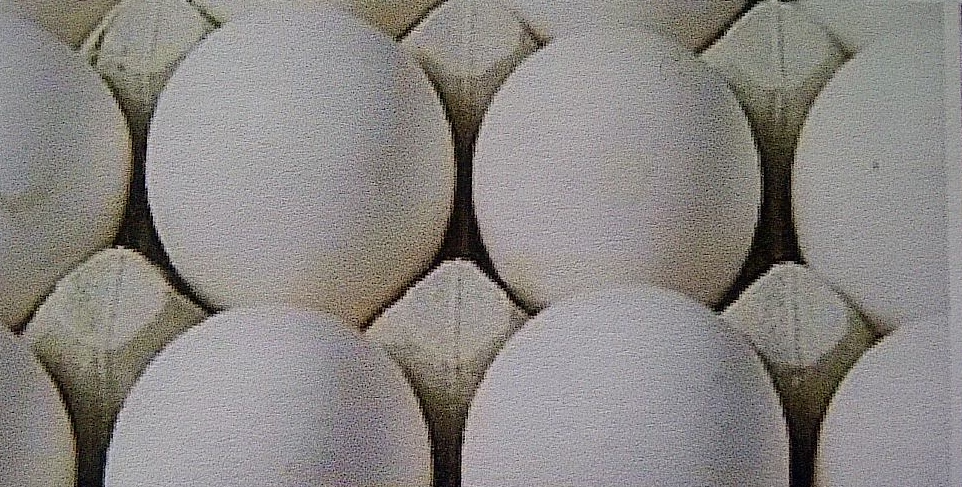
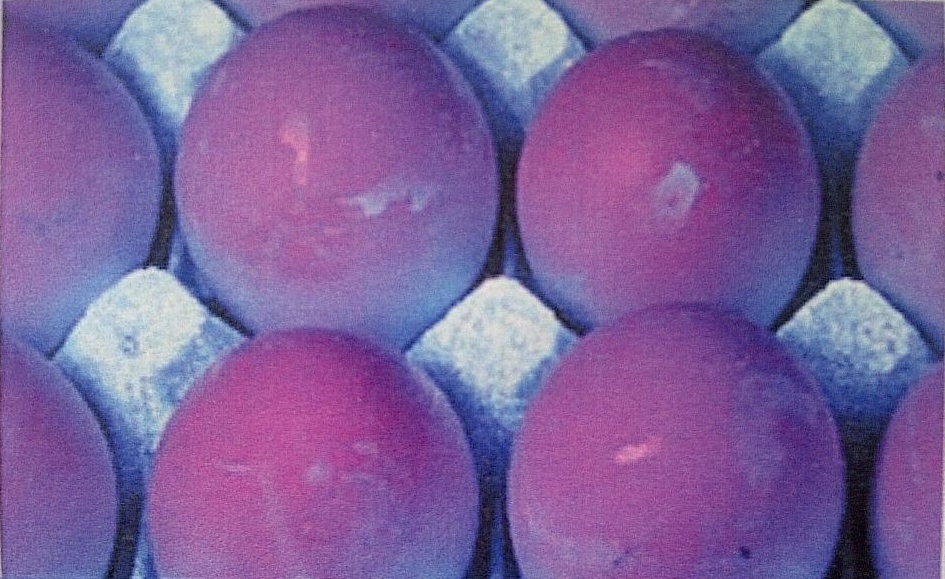


Picture 1- Human view of A class eggs (not washed)
Picture 2- View of the same A class eggs with help of ultraviolet light (not washed)
Picture 3- Human view of same eggs after washing
Picture 4- View of same eggs with help of ultraviolet light, after washing
2) Washing helps you increase the profits of your chicken farm
a) the consumer demands clean eggs. By not purchasing dirty eggs the consumer forces you to sell these eggs at lower prices to the industry, egg breaking and processing plants or in the worst scenario, just destroy them.
b) the egg breaking and processing plants pay more for clean(er) eggs. They know that eggs with lower shell borne bacteria allow for a more cost-effective pasteurization process.
c) The number of eggs produced at your poultry farm that can be used in the hatcheries increases. The hatcheries recognize that eggs with a lower bacterial load on the shell surface help achieve better hatching results and healthier chicks.
This positive effect of washing eggs is recognized in some countries, such as Sweden, the United States, Australia and Japan, where washing of eggs has become a routine and established practice that is regarded as safe and is perceived by consumers as an essential part of the hygienic production of eggs.

Tools required to perform a correct rinsing of egg
1) Clean eggs with washing water at the right temperature and the right pressure.
2) Use brushes that touch the whole surface of the eggs, evenly and at the right pressure.
3) Wash eggs during the necessary time and with the right detergent.
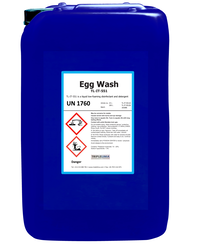
4) Rinse the eggs with clean, potable water at the right temperature and the correct pressure.
5) Add a disinfectant with the rinsing water (optional).
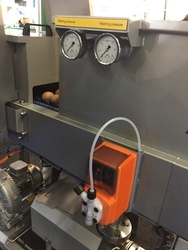
6) Dry the eggs by means of air, not brushes.
7) Oil the eggs immediately after drying (optional).
Furthermore, the machine must be designed to allow its perfect cleaning and disinfection after every working cycle.
All sections of the machine should be easily and fully accessible.
The UNIFORTES egg washers comply with all these requirements and are therefore the perfect tool for your washing operation.
The UNIFORTES egg washers are available in various capacities, ranging from 3.000 to 252.000 eggs per hour and can be operated as stand-alone or in-line with all the egg grading, packing and breaking machines available in the market.
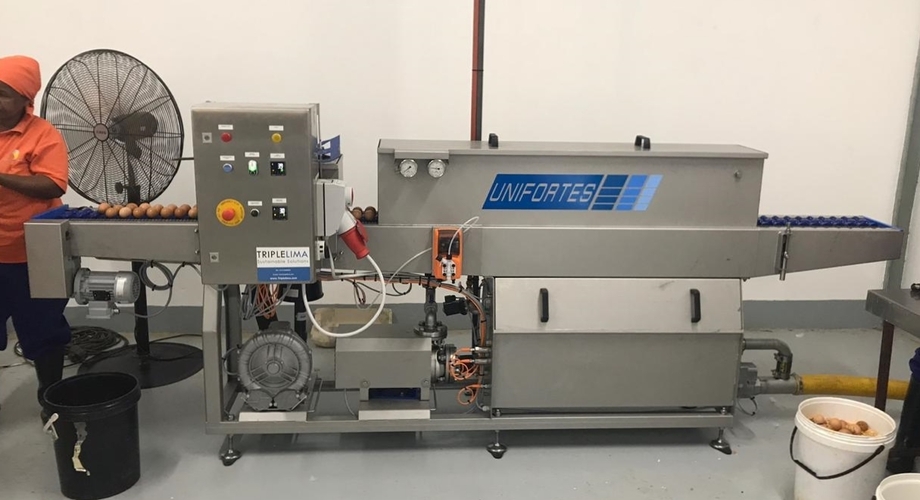
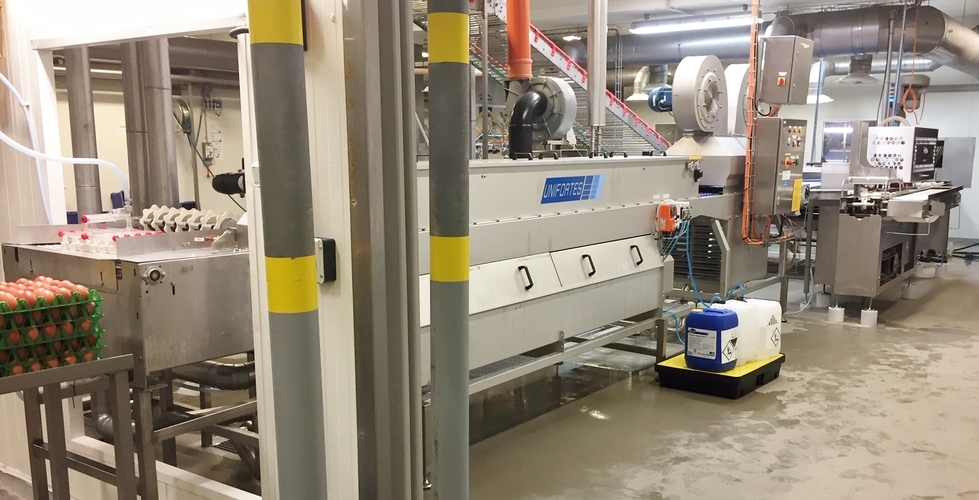
Correct procedures
To warrant optimal results, special attention should be paid to:
The age of the eggs to be washed
Eggs should be washed preferably immediately after being laid
The transport of the eggs through the machine.
Eggs should be transported individually, without touching each other, and should rotate so that all the shell surface is exposed to the full washing action of water and brushes.
The quality of the water used to wash and rinse
The water should be clean potable water with a PH between 10 and 11
The temperature of the washing water.
The temperature of the washing water must be set and maintained within parameters directly related to the temperature of the eggs when entering the machine.
The type and dosage of the detergent
The detergent must be specially manufactured to wash eggs and used in the correct dosage
The pressure of the brushes on the eggshell surface.
The pressure of the brushes should be adjustable so that eggs with hairline cracks should not be lost during washing process.
The temperature of the rinsing water.
The temperature of the rinse water must be set and maintained within parameters directly related to the temperature of the washing water
The type and dosage of the disinfectant in the rinsing water
The disinfectant to be added to the rinse water can be alkaline or chlorine-based, in the correct dosage.
The drying of the eggs.
In case it is required, the drying system should warrant that eggs are dried to the required level of dryness.
Consumption eggs should be perfectly dry to allow a perfect marking (inkjet) and to prevent mould formation and increased bacteria activity.
The egg oiling.
In case oiling is required, the egg oiling system should warrant a full coverage of the shell surface with a thin layer of special approved oil. This process prevents the loss of the humidity as well as gas exchanges through the egg pores. The oil prevents the entrance of microorganisms into the eggs and has a positive effect on the shelf life of the eggs.
The costs
The costs to wash eggs are lower that usually expected and well compensated by the achieved advantages. According to the size of the washing machine and the number of eggs washed daily, washing an egg costs between €uro 0.003 and €uro 0,007. These costs include all costs of ownership and operation.
Washed eggs may command an extra value between € 0,01 (industry eggs); + € 0,05 (consumption eggs); and even more for hatching eggs.
CONCLUSION: It is very profitable to wash eggs … and Triplelima helps you to realize these profits.
Q & A
Is it OK to wash eggs?
Yes, when you use the correct equipment and follow the correct procedures.
Can I wash chicken eggs in my country?
It depends on the regulations applicable to your country.
Example: the Commission Of the European Communities states on article 8) of the Commission regulation (EC) No.589-2008, that “ In general, eggs should not be washed or cleaned because such practices can cause damage to the egg shell”. On article 9) it states that “however, egg washing systems subject to authorisation and operating under carefully controlled conditions are used in some Member States with good results”
Can I wash eggs prior to egg breaking and egg pasteurization?
Also here you need to check the regulations applicable to your country.
In the EC a washed egg becomes a B class egg and the regulation does not indicate it cannot be used for the egg braking and pasteurization process.
Can I wash hatching eggs prior to setting them in the hatcheries?
Yes, when you do it correctly.
How does an egg washer work?
Eggs are washed with water at a temperature defined in accordance with the temperature of the eggs on arrival at the machine. Too low water temperature may help the trans shell movement of bacteria into the eggs. Too high temperature may lead to the cracking of the egg shells.
After washing, the eggs must be rinsed with clean, potable water containing a chemical sanitizer to remove any remaining bacteria. The rinsing water should be at the correct temperature.
Can I wash eggs with water at room temperature?
The temperature of the water plays a very important role when washing eggs.
The temperature of the washing water must be defined in accordance with the temperature of the eggs on arrival at the machine. Too low water temperature may help the trans shell movement of bacteria into the eggs. Too high temperature may lead to the cracking of the egg shells.
The temperature of the rinsing water must be defined in accordance with the temperature of the washing water.
What chemical is used to clean eggs?
The detergent should be specifically manufactured to wash eggs, and it should be used in the correct dosage to not affect negatively the natural defense mechanisms of the eggs.
Why is it advisable to dry the eggs after washing?
Yes. Despite the effect of the detergent in the washing water and the disinfectant in the rinsing water, there will still be a small % of pathogens and microorganisms left on the egg shell surface after egg washing. Humidity on the eggs encourages the growth of these microorganisms and their eventual transfer into the eggs.
How long do washed eggs last?
When washed with correct tools and according to correct procedures washed eggs will last as long as Class A non-washed eggs. To increase their shelf life you may spray oil after washing and drying.
Contact Triplelima for further information on how to profit from unwashed eggs to cleaned eggs.
Do you wan to see it in action!
READ MORE
HOW TO WASH PLASTIC EGG TRAYS USED THE POULTRY INDUSTRY
IS WASHING OF PRODUCTS USED IN THE POULTRY INDUSTRY NECESSARY?

